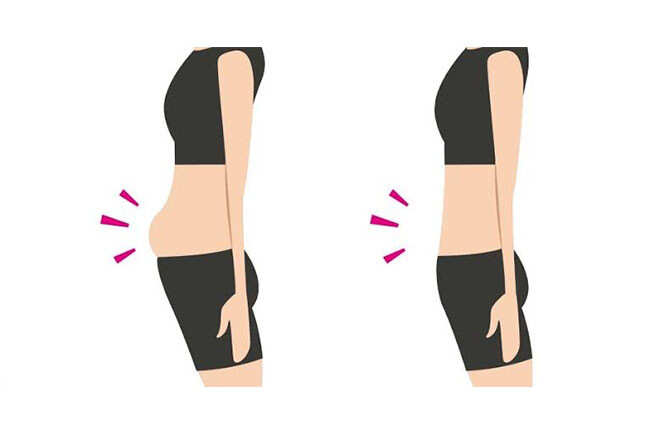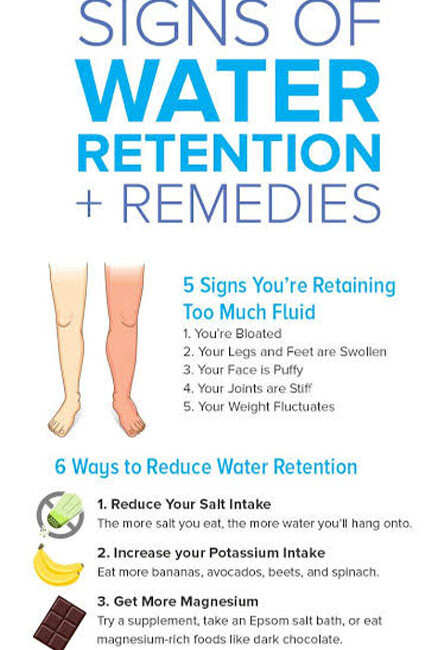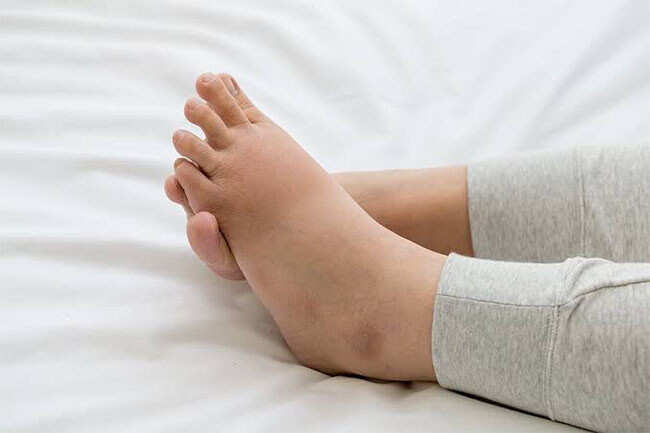Is it that time of the month around the corner again? Are you ready to watch sappy movies while eating heaps of chocolate ice cream trying to ignore the bloating and puffiness? Well, we have the reason for the uncomfortable bloating—water retention. Essentially, fluid or water retention is the accumulation of excess fluids in body tissues, medically known as edema. While fluid retention is not only caused by your menstrual cycle, it is one of the possible causes. Here is everything you need to know about the condition and some remedies as well.

What is water retention?
Our body constitutes 70% of water, when your hydration level is not balanced, your body tends to hang on to that water. This is known as water retention. Usually, this condition may cause you to feel heavier than normal, and less nimble or active. It can also cause bloating, puffiness or swelling. Commonly, plane flights, hormone changes and excessive salt consumption and genetics can be pointed out as the causes of water retention.
Symptoms of water retention.
Symptoms of water retention can include the following:
- Bloating especially in the abdominal area
- Swollen limbs - legs, feet, and ankles
- Puffiness of the abdomen, face, and hips
- Stiff joints
- Weight fluctuations
- Indentations in the skin, are similar to what you see on your fingers when you’ve been in the bath or shower a long time

What are the causes of water retention?
The causes of water retention can be narrowed down to:
- Poor Diet: One of the most common causes of water retention is following a poor diet. If your diet consists of excess sodium levels or excess sugar, it can lead to retention of water in your body.
- Excess Insulin Levels: This condition can also be caused because of a high level of insulin in one’s body, which has to build up water in the lungs as a direct consequence. This can also be a sign of Type 2 diabetes. Consuming excessive amounts of sugar or refined carbohydrates can lead to excessive insulin in the system. It is also advisable to maintain a 12-hour window to consume food because then the body produces insulin only at the required time and not throughout the day.
- Lack of Movement: Leading an active lifestyle is very important for your mind and body. When you move, the muscles in your legs pump the fluid back to your heart which ensures the proper functioning of all physiological systems.
- Maintaining a Healthy Body Weight: According to experts, excess body weight can be a contributing factor to water retention. It can affect the circulation of fluids throughout the body and may also put pressure on your veins.
- Pregnancy: Pregnancy may also cause water retention in an individual, particularly in the ankles and feet. The swelling comes gradually and is a normal feature that follows pregnancy as the body undergoes various changes. However, if swelling comes on quickly and is accompanied by headaches or vomiting or you feel generally unwell, see your physician as this may be a sign of preeclampsia.
- Medication: Certain medications such as the ones used to lower blood pressure or to treat type 2 diabetes may also cause water retention in the body.
- Undiagnosed Health Issues: Seldom, water retention may be caused by heart-related problems, including heart failure, which is more commonly seen in middle-aged and older people. Rarely, fluid retention or water retention may be a sign of problems with the liver or kidneys.
Remedies for water retention.
Remedies for water retention are quite simple and can be made easily by making a few lifestyle changes.
- Follow a low-salt diet: Trying to limit your sodium intake to no more than 2,300 milligrams per day may prove to be helpful. This means shopping the perimeter of the grocery store and not eating processed packaged foods. Try adding spices instead of salt to flavour vegetables and lean proteins.
- Addition of potassium and magnesium-rich foods: Such foods will aid in balancing the levels of sodium in your body. Include bananas, avocados, tomatoes, sweet potatoes and leafy vegetables, such as spinach in your diet.
- Ensure you take Vitamin B-6: According to various studies, vitamin B-6 significantly helps with premenstrual symptoms like water retention.
- Include Protein in your Diet: Protein attracts water and keeps your body balanced. A special protein called albumin keeps fluid in the bloodstream and prevents it from leaking out and causing swelling.
- Compression Socks: Compression socks are easily available at athletic clothing stores and many online sites. Compression socks are made to fit tight. They may even feel a little uncomfortable at first but the compression apparel successfully squeezes your legs and prevents fluid from accumulating in any part of your body.
Some serious causes of fluid retention may need medical treatment, but home remedies may help relieve the symptoms.
- Herbal Remedies: Certain herbs such as the extract of dandelion are natural diuretics and may help reduce the amount of water the body retains in a day. A word of caution, as a food, dandelion is generally considered safe, although there is no scientific evidence to show that it has any medicinal use or that it is safe as a treatment. Some people may also have an allergy to it. A person should speak to a doctor before using this or any other herbal remedy. Diuretics may not be safe for people with kidney disease, for instance.
- Elevation: If an individual is dealing with edema in their lower limbs, it may help to:
- sit with the legs raised above the heart several times each day
- sleep with the affected limb on a pillow, to raise it above the level of the heart
- have a massage, in which someone strokes the affected area firmly but gently toward the heart

FAQs
What are the signs of water retention?
Here are the signs of water retention:
- swelling of affected body parts (feet, ankles and hands)
- aching of affected body parts.
- stiff joints.
- rapid weight gain over a few days or weeks.
- unexplained weight fluctuations.
- when pressed, the skin may hold the indent for a few seconds (pitting oedema)
What causes excess water retention?
Water retention is a fairly common disease in the world because there are so many underlying reasons for the condition. Sometimes, water retention is associated with weight, as the body adjusts to the potential dietary changes that come with weight loss or weight gain. Edema is caused by nutrient deficiencies and imbalances, with vitamin A, vitamin C, vitamin B-6, magnesium, and zinc being common vitamins and minerals that affect symptoms. Other times, edema is affected by behavioural habits; the way a person physically moves and exercises and how they massage their muscles has a significant impact on the presence or severity of the disease.
How serious is water retention?
According to doctors, fluid retention can escalate to life-threatening conditions in some cases. For instance, people who have a history of heart-related issues can deal with serious consequences of the condition.
What foods help lose water weight?
Potassium-rich foods are often recommended, as potassium can help balance sodium levels and increase urine production, helping you drop excess water. Dark green leafy vegetables, beans, bananas, avocados, tomatoes and yoghourt or other dairy products are all healthy and potassium-rich.
How can I stop retaining water?
Here are 6 ways to reduce water retention.
- Eat less salt.
- Increase your magnesium intake.
- Get more vitamin B6.
- Eat more potassium-rich foods.
- Try dandelion.
- Limit your refined carb intake.
Next Story


